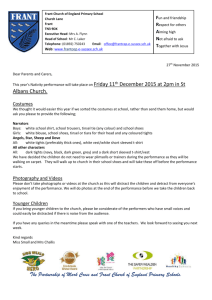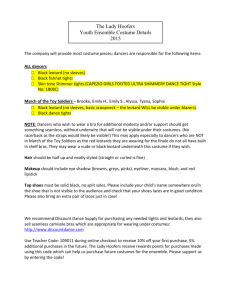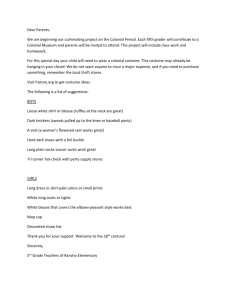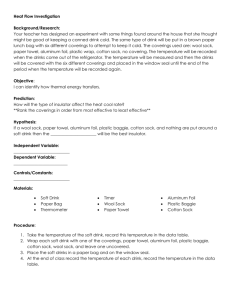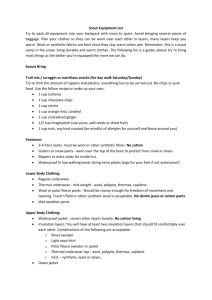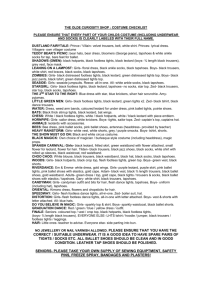Dressing to cycle in cold weather
advertisement
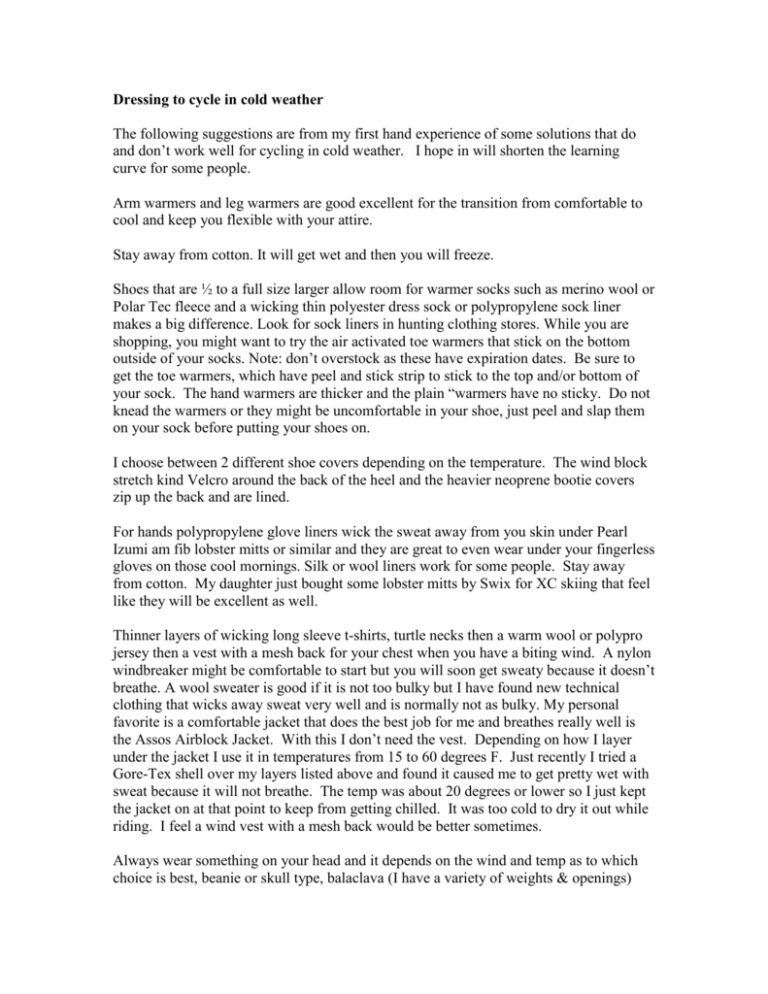
Dressing to cycle in cold weather The following suggestions are from my first hand experience of some solutions that do and don’t work well for cycling in cold weather. I hope in will shorten the learning curve for some people. Arm warmers and leg warmers are good excellent for the transition from comfortable to cool and keep you flexible with your attire. Stay away from cotton. It will get wet and then you will freeze. Shoes that are ½ to a full size larger allow room for warmer socks such as merino wool or Polar Tec fleece and a wicking thin polyester dress sock or polypropylene sock liner makes a big difference. Look for sock liners in hunting clothing stores. While you are shopping, you might want to try the air activated toe warmers that stick on the bottom outside of your socks. Note: don’t overstock as these have expiration dates. Be sure to get the toe warmers, which have peel and stick strip to stick to the top and/or bottom of your sock. The hand warmers are thicker and the plain “warmers have no sticky. Do not knead the warmers or they might be uncomfortable in your shoe, just peel and slap them on your sock before putting your shoes on. I choose between 2 different shoe covers depending on the temperature. The wind block stretch kind Velcro around the back of the heel and the heavier neoprene bootie covers zip up the back and are lined. For hands polypropylene glove liners wick the sweat away from you skin under Pearl Izumi am fib lobster mitts or similar and they are great to even wear under your fingerless gloves on those cool mornings. Silk or wool liners work for some people. Stay away from cotton. My daughter just bought some lobster mitts by Swix for XC skiing that feel like they will be excellent as well. Thinner layers of wicking long sleeve t-shirts, turtle necks then a warm wool or polypro jersey then a vest with a mesh back for your chest when you have a biting wind. A nylon windbreaker might be comfortable to start but you will soon get sweaty because it doesn’t breathe. A wool sweater is good if it is not too bulky but I have found new technical clothing that wicks away sweat very well and is normally not as bulky. My personal favorite is a comfortable jacket that does the best job for me and breathes really well is the Assos Airblock Jacket. With this I don’t need the vest. Depending on how I layer under the jacket I use it in temperatures from 15 to 60 degrees F. Just recently I tried a Gore-Tex shell over my layers listed above and found it caused me to get pretty wet with sweat because it will not breathe. The temp was about 20 degrees or lower so I just kept the jacket on at that point to keep from getting chilled. It was too cold to dry it out while riding. I feel a wind vest with a mesh back would be better sometimes. Always wear something on your head and it depends on the wind and temp as to which choice is best, beanie or skull type, balaclava (I have a variety of weights & openings) I have accumulated a variety of tights with and without chamois pad. Non-chamois tights worn over your shorts layers your lower body and also allows you to shed the tights during the ride. On the coldest rides I usually wear tights that have a built in chamois. Last year I acquired some wind block tights and some warmer baggy thermagrid tights and they are really nice on the really cold rides or wear polypro long underwear under my polypro tights. For you crafty frugal folks you can make your own warm tights as I did years ago with wool knit jersey material but might find you need suspenders to keep them up as you ride. Out on the road we will find out how our choices of clothing work for us. Share your experience on the rides. It you have trouble finding a solution speak up. Best regards, see you on the road, Jay Wesselink
